
Pin on Grammar
The differences between "denn" and "weil" are syntactic only. "Denn" introduces a main clause, which is why, as you say, it "doesn't change the sentence structure". The finite verb remains in second position. "Weil" introduces a subordinate clause, so the finite verb is moved to the end of the clause.

denn und weil / expressing why you like to do something YouTube
Here is the biggest difference between denn and weil: denn is a coordinating conjunction, and weil is a subordinating conjunction. So what, you ask? Well, a coordinating conjunction does.

denn, weil, da explanation 1 YouTube
weil is the most common way to say "because" and it introduces a subordinate clause. da is very similar, but a bit fancier, so more like using "as" in English. denn connects two main clauses, so the grammar is very different. wenn never means "because". It's more like "if" or "when" (though note that it doesn't work for all uses of those words).

What is the difference between "weil" and "denn" in German? Deutsch mit Dave YouTube
The answer is: Conjunctions. And just like in any other language, German conjunctions are a vital part of the German language. In this post, we're going to have a closer look at the magic that is German conjunctions! Types of German Conjunctions There are two types of German conjunctions: coordinating conjunctions and subordinating conjunctions.
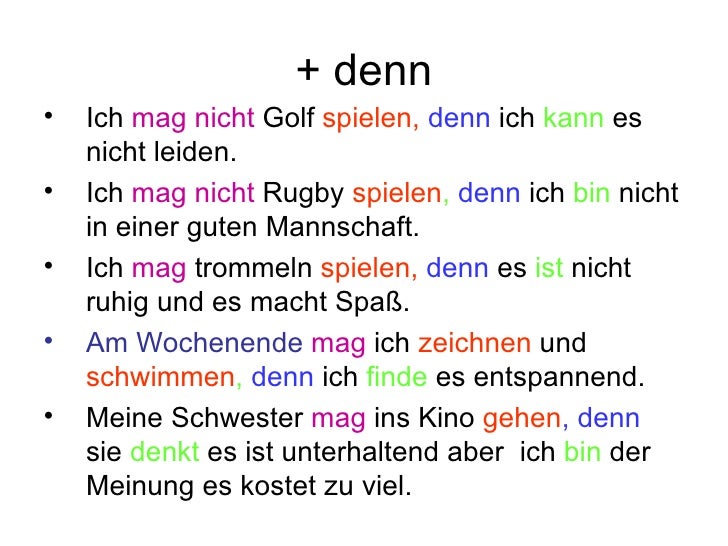
Reasons + Weil + Denn
What is the difference between "weil" and "denn" in German? | Deutsch mit Dave - In this language lesson, learn how to effectively use 'denn' and 'weil' in the German language. While these.

WEIL vs DENN ¿Cómo utilizarlos? YouTube
Weil vs. Denn vs. Da | Super Easy German (166) Easy German 1.84M subscribers Subscribe Subscribed 1 2 3 4 5 6 7 8 9 0 1 2 3 4 5 6 7 8 9 0 1 2 3 4 5 6 7 8 9 . 1 2 3

Learn German Kausalsatz Nebensatz weil (da) vs denn German for beginners A2 Lesson 4
There are several ways to express a reason in German. This article explains to you how to use "denn", "da", and "weil" properly.
denn/weil vs. deshalb/deswegen/darum/daher Quiz
denn vs. weil both mean "because" but structure and usage differ. In daily life, stick with "weil" because "denn" sounds a bit stilted. Not as much as "for", but still. Check the article for details. 0 0 votes. Article Rating. Read more. What's the difference - "denn" vs "weil"
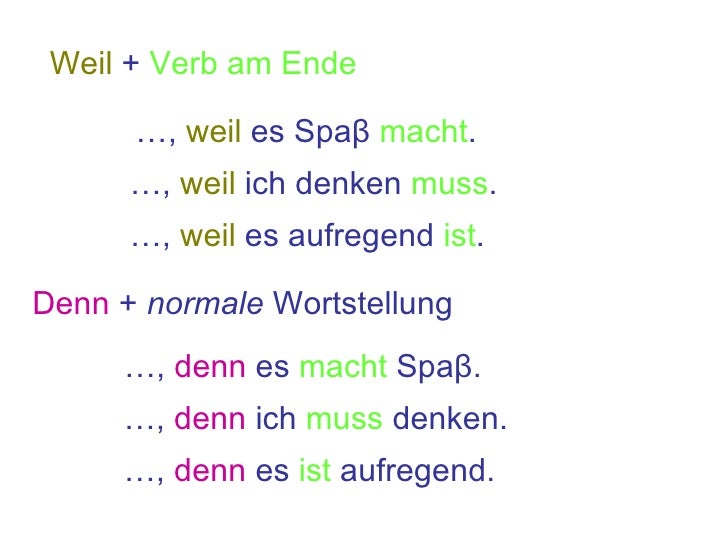
Reasons + Weil + Denn
The grammatical difference between weil is that weil is a subordinating conjunction while denn is a coordinating conjunction.

Denn vs dann в чем разница? Немецкий язык с Еленой Сивудой YouTube
A fun look at the meaning of 'denn', the difference between 'denn' and 'weil' and the real reason why Germans love adding 'denn' to questions. 122 Comments Hello everyone, and welcome to our German Word of the Day.

Weil vs. Denn vs. Da Super Easy German (166) YouTube
This is the sixth video in a series of short videos designed to make it easy for you to keep up and improve your German. It presents two simple sentences in German, with accurate pronunciation and.
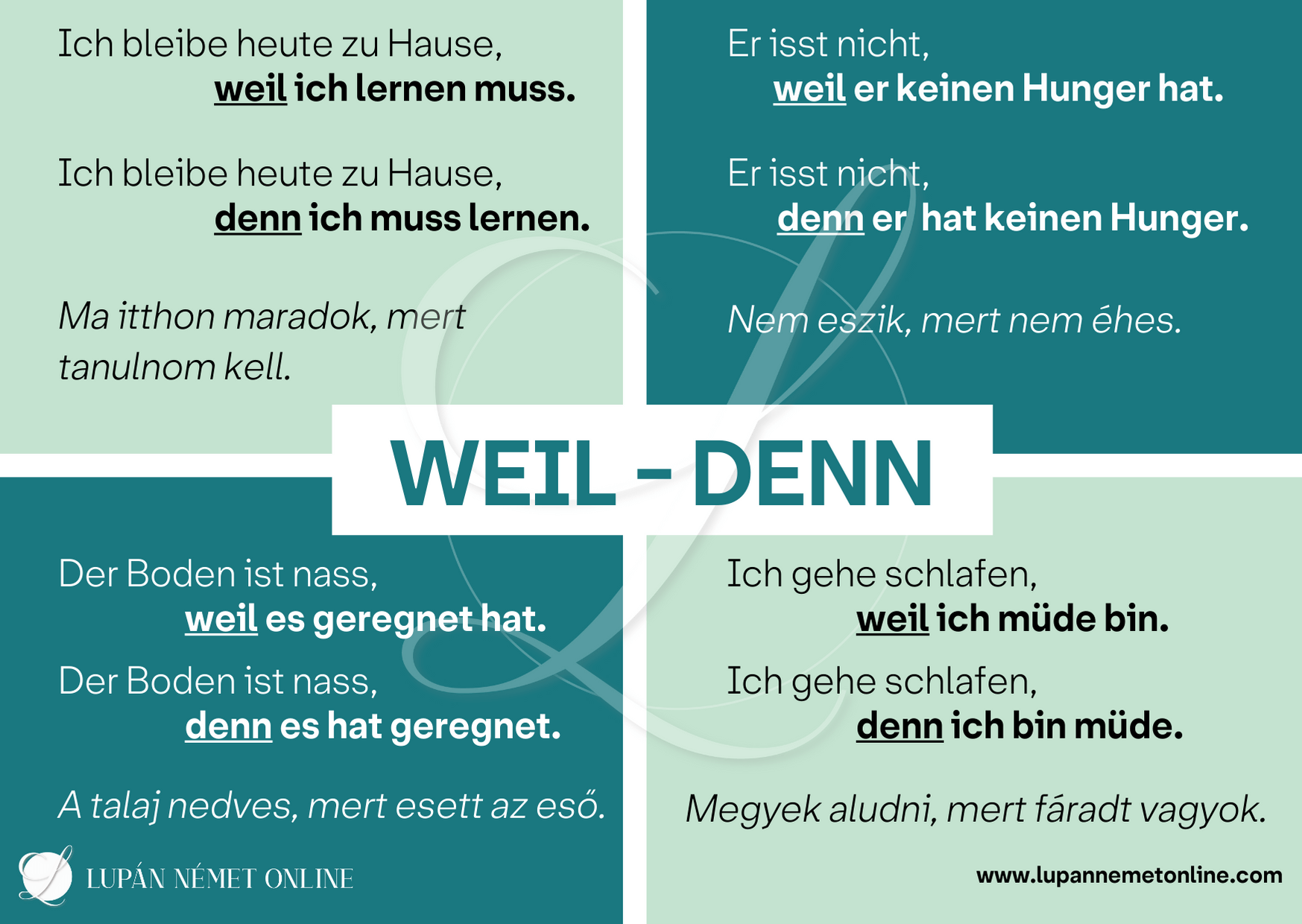
denn oder weil? Lupán Német Online
"Denn" is a coordinating conjunction approximately meaning "as a result of." It cannot be used to begin a sentence, but can begin independent clauses that are after others. This definition is the same as that of "for" when it is used as a conjunction. "Weil" is a subordinating conjunction with approximately the same meaning as "denn".

Weil oder denn? Frau Repetitor
Jana ist eine gute Freundin, denn sie ist immer hilfsbereit und vertrauenswuerdig. Jana is a good friend, because she is always helpful and trustworthy. VS 'Weil' introduces a 'subordinate clause', which means that it sends the verb to the end of the sentence. eg. Jana ist eine gute Freundin, weil sie immer hilfsbereit und vertrauenswuerdig ist.
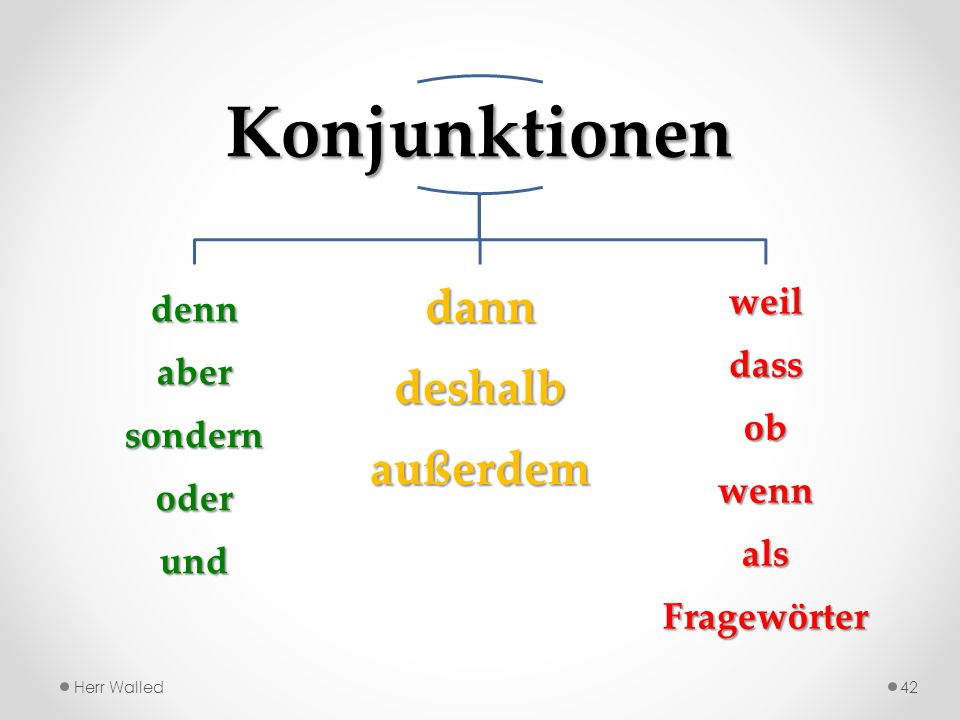
DeshalbDennWeil Other Quizizz
Sentences in the perfect have a subordinate clause with the conjugated form of "haben " or "sein" at the end of the sentence. New words: "Handwerk" refers to jobs in the trades. It is a generic term for professions that are traditionally based on manual work rather than mass production, e.g. baker, tailor, or carpenter.

немецкий ПРавильное использование союзов weil, denn, da YouTube
This article details to him how to use "denn", "da", and "weil" properly. There are many ways to express one reason in German. This article explains to you how to use "denn", "da", and "weil" rightly.
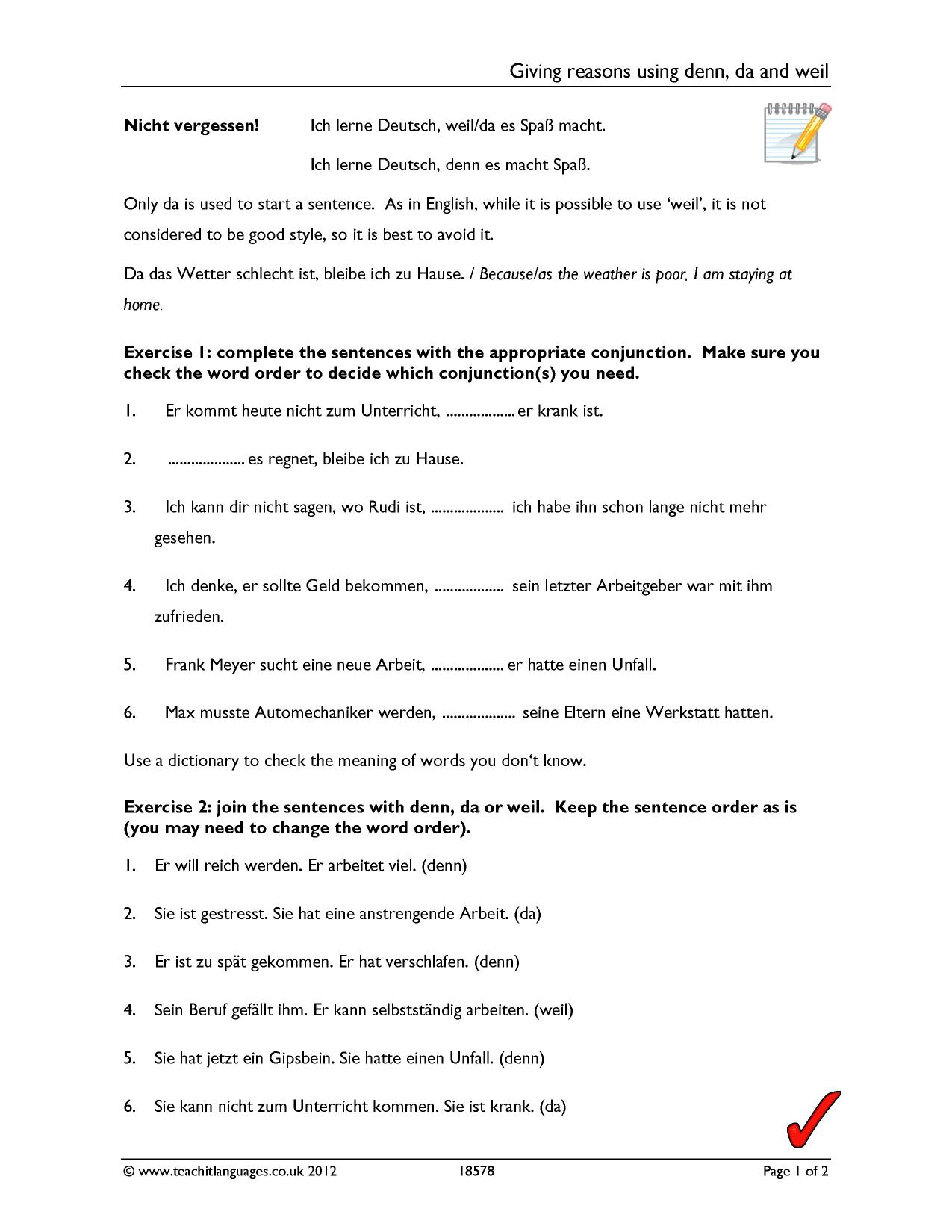
Connectives Grammar KS4 German teaching resource Teachit
Beide Konjunktionen haben die gleiche Bedeutung. Aber es gibt Unterschiede im Satzbau: „weil" leitet einen Nebensatz ein. Das konjugierte Verb steht am Ende des Nebensatzes. Beispiel: Nico und Pepe haben oft Streit, weil sie sehr verschieden sind. Nach „denn" steht ein Hauptsatz, in dem das Verb an der zweiten Position steht.